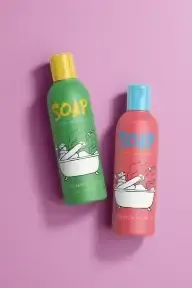
The cosmetics sector in the United States
FDA Cosmetic Product Ingredient Registration
Which cosmetic products can be exported to the USA?
https://www.exportusa.eu/cosmetics_ingredients_php (+1) 718-5225575
(+1) 718-5225575
With the proliferation of social media influencers promoting countless beauty products and forging partnerships with a vast selection of cosmetic companies, combined with the seemingly endless launch of celebrity-owned beauty lines, how does the public decide what cosmetic products to buy and which brands to trust? In 2025, what do Gen Z consumers take into consideration when purchasing beauty products?
It’s more important than ever that makeup and beauty brands are committed to inclusivity, represent diverse models in all marketing materials, and challenge traditional beauty standards. Rihanna’s Fenty Beauty, which launched in 2017, includes 50 foundation shades, providing makeup options for all skin tones and attracting consumers who felt previously underserved by mainstream beauty brands.
This revolutionized the cosmetic industry and called for a change in how brands consider the accessibility of their products and how to reassess their marketing tactics. Rihanna herself personally advocates for Fenty Beauty’s inclusive practice, emphasizing that her makeup products are for people of all gender identities and aim to celebrate all skin colors. By 2024 Fenty Beauty amassed a revenue of $602.4M with a net worth of $2.8B, ranking higher than other celebrity cosmetic brands such as Selena Gomez’s Rare Beauty and Kylie Jenner’s Kylie Cosmetics. Fenty Beauty demonstrated how a strong commitment to social ethics and representation can dramatically transform consumer engagement and market success in the cosmetics industry.
When The Ordinary, a skincare line under the Deciem company, launched in 2016, its affordability, science-backed formulas, range of products, and minimalist marketing brought forth a new and creative approach to skincare. Unlike traditional marketing of skincare lines, The Ordinary centered transparency regarding active ingredients and delivered simplified packaging with a clinical-style aesthetic, all while rejecting celebrity endorsement.
These decisions disrupted traditional high-end skincare pricing, empowered consumers with scientific information, and deconstructed complex and luxurious skincare routines. This innovative and original approach helped them go viral on social media platforms and generated attraction among younger consumers looking for affordable quality skincare.
Especially within the past 10 years a multitude of celebrities, from singers to actors to social media personalities, have started their own cosmetic lines. As the beauty industry continues to evolve, celebrity-driven brands have become a defining feature of modern marketing.
Having a brand that is connected to a big name has a substantial impact on its success and development, and celebrity-owned brands have only proliferated since the increased capabilities of social media outreach. Examples include Lady Gaga’s Haus Labs, Hailey Bieber’s rhode skin, and Ariana Grande’s rem beauty, all of which launched in the past six years.
Celebrity-owned brands primarily create a sense of credibility and trust between producer and consumer. Not only are celebrities perceived as beauty and style experts, but their personal endorsement and brand storytelling suggest product quality and authenticity. Consumers tend to trust recommendations from familiar faces, and this parasocial relationship creates an emotional connection that transcends traditional advertising. With celebrity influence, making decisions about purchasing cosmetic products goes beyond the commodity and speaks directly to the consumers’ lifestyle choices and desire for social connection.

Which cosmetic products can be exported to the USA?
https://www.exportusa.eu/cosmetics_ingredients_php
Trade implications of MOCRA regulation for exporting and selling cosmetic products to the U.S.
https://www.exportusa.eu/business-implications-mocra.php
Explore packaging examples created by Concepto for the U.S. market, designed to evoke positive emotional reactions through neuromarketing
https://www.exportusa.eu/branding-cosmetic-products-for-american-market.php
ExportUSA opens US incorporated companies in all of the United States. We can open both LLCs and corporations
https://www.exportusa.eu/opening-a-company-exportusa.php